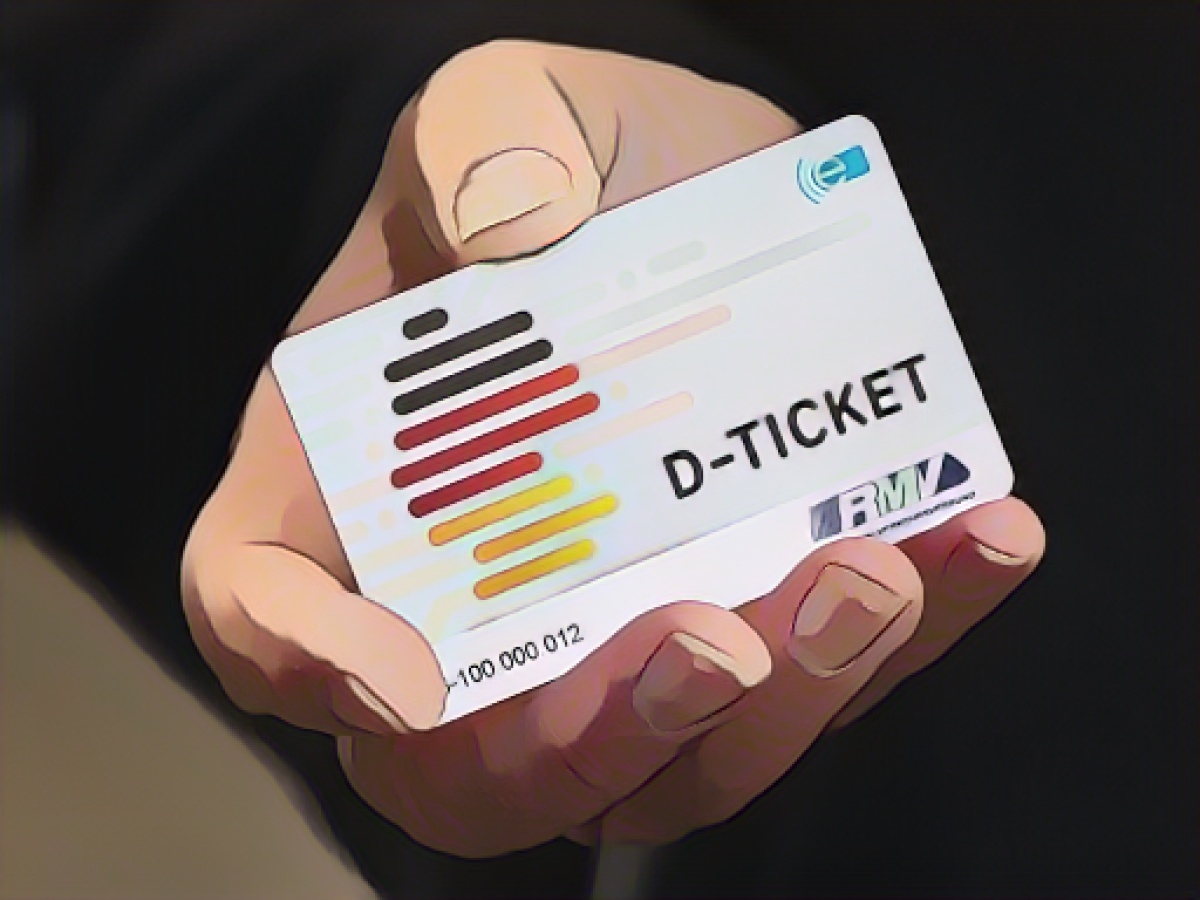Expert: Germany ticket already too expensive
In view of the discussions about the Deutschlandticket, a mobility expert has warned against a price increase.
"According to our calculations, around 10 million people currently use the Deutschlandticket. If the price were to rise to 59 euros, perhaps six to seven million would remain," Andreas Knie from the Social Science Research Center in Berlin told the German Press Agency. "The ticket should actually cost 29 euros, then there would be many more people on the trains." He is "dismayed" by the current political developments.
Financing not agreed on all points
Although the federal and state governments agreed on Monday that the Deutschlandticket will also be available next year, the financing has still not been agreed on all points. The transport ministers of the federal states have been called upon to develop a concept for the future of the Deutschlandticket beyond May 1, 2024 - including a possible price increase.
Scientist Knie criticized the fact that the ticket is already a ticket for people with higher incomes. He assumes that only 400,000 to 500,000 people who previously had no public transport ticket at all now use buses and trains with the Deutschlandticket. In particular, people who live in the suburbs of large cities and had to spend three-figure sums on a monthly ticket to work before the Deutschlandticket have benefited from the 49-euro offer.
Saving with transport associations
In order to be able to offer the Deutschlandticket more cheaply, the transport associations should cut down on bureaucracy - there is a lot of potential here. "You could make savings, but it's difficult to do so with the transport associations," said Knie. There are more than 60 transport associations in Germany.
In some regions, this fragmentation has also led to complicated fare structures in the past, which the Deutschlandticket should make history. Federal Transport Minister Volker Wissing (FDP) has recently spoken out several times in favor of reducing the number of transport associations in order to achieve more efficient structures and save money on administrative tasks.
Experts agree with the minister
"Wissing is right, there are already some very bloated structures at the transport associations and authorities," says Berlin-based transport researcher Christian Böttger. The lack of agreement at the Minister Presidents' Conference is ultimately a cost-cutting order for the federal states. However, local public transport is one of the few areas in which state and local politicians still have their own scope for decision-making - and this is now being defended. "It's also about local jobs that would be lost if, for example, there was a standardized national ticket system," said Böttger.
The transport researcher sees a possible reason for the harshness of the conflict between the federal government and the federal states: "Many federal states and associations have added their own special offers to the Deutschlandticket, and an unknown number even receive the ticket free of charge from their employer," says Böttger. When the ticket was introduced, the federal and state governments agreed to share the costs. "Now the federal states want more money from the federal government than originally agreed - it's conceivable that this has annoyed the federal government."
The ongoing dispute over the financing of the Deutschlandticket has led expert Andreas Knie from the Social Science Research Center in Berlin to express concerns. He suggested that if the price of the Germany ticket were to increase to 59 euros, around six to seven million consumers might stop using it, and advocated for a reduced price of 29 euros to attract more users. Meanwhile, Transport Minister Volker Wissing (FDP) has supported reducing the number of transport associations to achieve more efficient structures and save costs on administrative tasks.
Source: www.dpa.com








